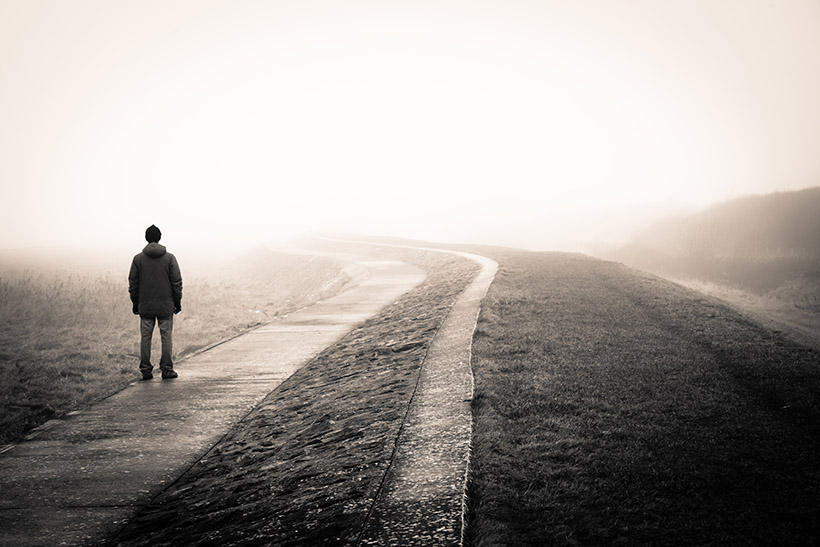This post was written by NCTE member Jeremy Hyler, an NCTE Community Ambassador.
Since the beginning of this new journey, one where social distancing has become the new norm, I have seen things happen that I never in my wildest imagination would have thought would happen. My own children ask questions of me every day and there are questions I simply cannot answer.
Today, I compare the COVID-19 situation to the death of someone I know and love. In addition to grieving the loss of relationships with my students, I wonder: Is education dead or will our lives be completely changed forever?
I believe the answer is no, education is not dead; our lives will be different, but not changed forever. Yet, if other educators are similar to me, they are not celebrating this time off like an extended vacation, but mourning the loss of teaching their students, having a normal routine, and being able to have impactful relationships with all students; especially the ones that truly need those relationships.
Walking into my classroom every day has always been uplifting, and each day offered up the question, “How can I make a difference today?” The simple “good mornings” and the playful banter that should still be happening each day are becoming distant memories. My classroom is cold, dark, and silent. There is no laughter or conversation; it is no longer a safe place for my students to go.
Think about those days when our students taught us something when we least expected it. Those are the days I miss, and that is just one of the wonderful memories that play through my mind over and over. The pain and hurt I feel are real and this loss is not easy to take.
Despite the difficulties we are all having, we find ourselves trying to reach out to our students to keep them involved as much as possible. From emails and announcements in Google Classroom, from Remind messages to phone calls, educators are staying connected.
We are grasping at ways we can maintain relationships with our students while trying to find our way through the fog that has now become online teaching. For most teachers, the way we deliver instruction and how we think about delivering instruction has been changed in a whirlwind. It seems we are picking up more and more of the pieces each passing day, but we are all still trying to find effective instructional practices.
From Mourning to Virtual Teaching
I have spent the majority of my time while sheltering in place doing two different things. One feels more productive than the other, but both are necessary.
To begin, I have been connecting with my fellow educators and leaning on them for support. This is what we would do if we truly had lost a loved one. We are having conversations and laughing when we can, all to help ease the pain of not being in our classroom and doing what we love. My personal learning network (PLN) is incredible, and I am forever grateful for their support and willingness to reach out to all educators across the nation and globe.
In addition, I have offered my sixth- and seventh-graders Zoom meetings where we can talk about their thoughts and feelings about everything that is happening. My colleague Zack Baker joined us, and we both agree that it has been an invigorating experience to connect with our students for even just 30 minutes. It is as if we received a vitamin shot. I have been grateful for even the littlest interactions.
Second, I have spent time sitting on my couch and at my dining room table, just staring and wondering—in all honesty, mourning the loss of my passion and my identity. It is, after all, what I feel I am good at. Yes, there have even been tears. While I know others have suffered physically from the effects of this virus, it has taken something from me, too: I have lost a huge part of who I am.
Similar to the loss of a loved one, I am trying to get back on my feet with the new routine we are all enduring, but it is taking me time. Writing has been a savior; it helps me to heal the wounds that have been ripped open.
Final Thoughts
As I watch and learn more and more about schools shutting down for the year across the nation, my heart sinks further. I think about all the seniors, the students who are passionate about school, and the students who need school as their safe place.
The time of mourning will be lengthy and difficult, just as it is in real life when we lose someone we care so much about. Teachers and educators are strong! We will move on and find our way back to our students when the pandemic is over. If we choose to, we will be stronger because of all of this.
In terms of our virtual classrooms, what we decide to do is ultimately up to each of us as individuals. We will find what works best for our students and our communities. I am confident we are strong enough and smart enough to make it through our loss, and to make our education system better with how we move forward with instruction. For now, let’s continue to laugh, love, and take care of each other.

Jeremy Hyler is a sixth- and seventh-grade English teacher at Fulton Middle School in Michigan. He is also an author and writing consultant for the National Writing Project. Jeremy has been teaching for 17 years and loves being able to help students recognize that reading and writing can lead to wonderful opportunities.

